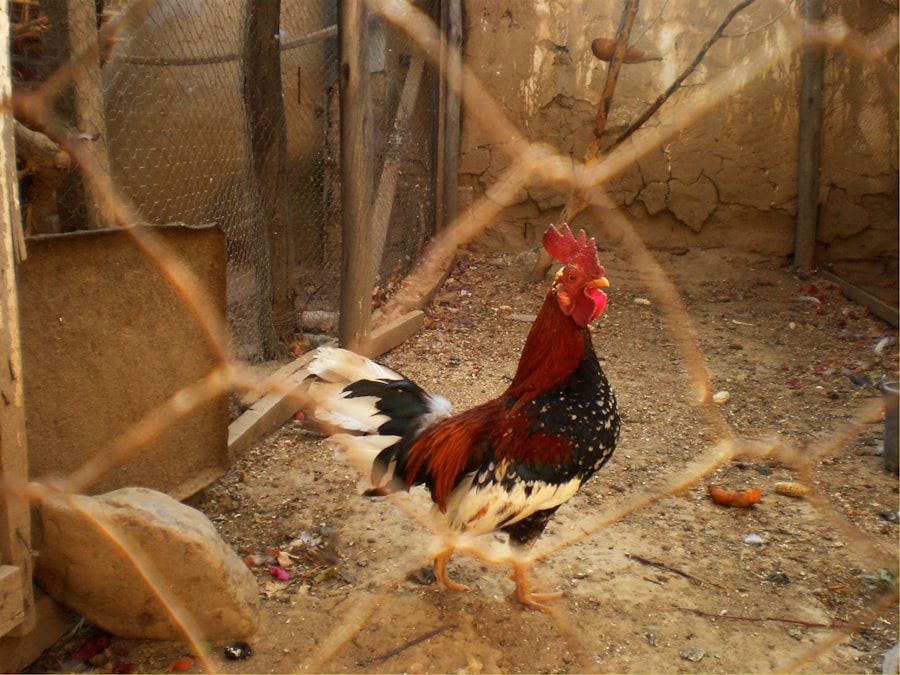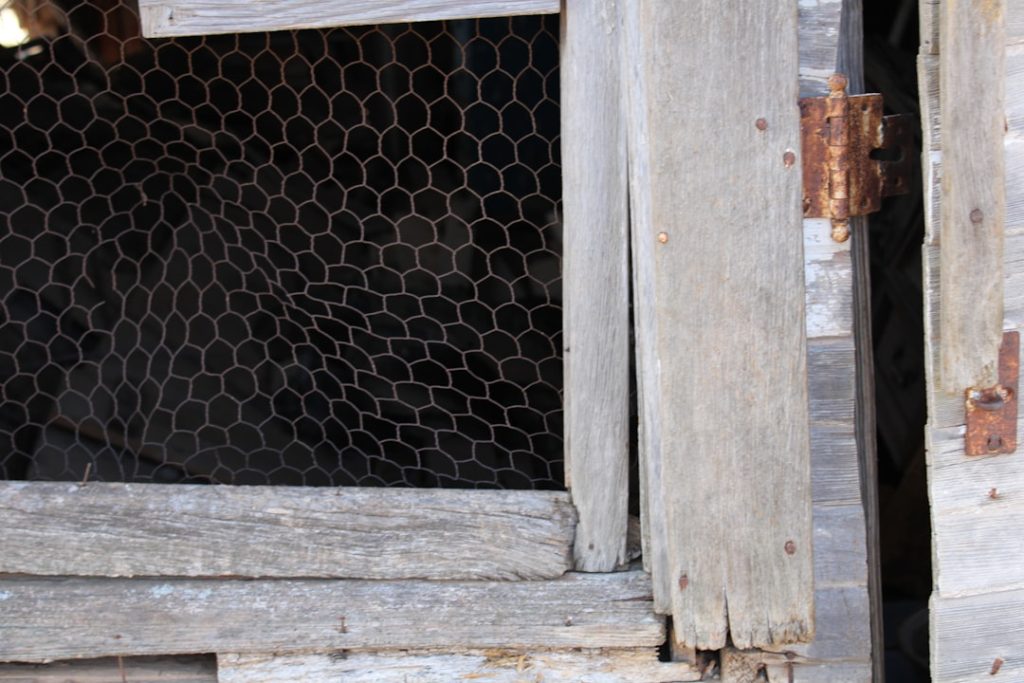Chickens are inquisitive and gregarious birds known for their pecking behavior. They possess a natural instinct to scratch and peck at the ground in search of sustenance, which can potentially result in damage to gardens and landscaped areas. A thorough understanding of chicken behavior is essential for developing effective deterrent strategies.
These birds are easily startled by sudden movements or loud noises, a characteristic that can be exploited when implementing scare tactics to keep them away from specific locations. Chickens are creatures of habit and tend to adhere to routines. They exhibit a strong sense of territory and frequently return to familiar areas for foraging.
This behavioral pattern can be utilized to strategically position physical barriers or natural deterrents, effectively preventing chickens from accessing certain spaces. By comprehending chicken behavior, it becomes possible to formulate a comprehensive approach to mitigating damage to gardens and landscapes caused by these birds.
Table of Contents
- 1 Choosing the Right Type of Mulch
- 2 Creating Physical Barriers
- 3 Using Natural Deterrents
- 4 Implementing Scare Tactics
- 5 Providing Alternative Distractions
- 6 Seeking Professional Help
- 7 FAQs
- 7.1 What are some effective ways to keep chickens out of mulch?
- 7.2 Why is it important to keep chickens out of mulch?
- 7.3 What are some natural deterrents that can be used to keep chickens out of mulch?
- 7.4 How can physical barriers be used to keep chickens out of mulch?
- 7.5 Are there any alternative areas that can be provided for chickens to scratch and forage?
Key Takeaways
- Chickens are social animals and their behavior is influenced by their environment and interactions with other chickens.
- When choosing mulch for your garden, consider factors such as moisture retention, weed suppression, and nutrient contribution.
- Physical barriers such as fences and netting can effectively keep chickens out of specific areas.
- Natural deterrents like predator urine and strong-smelling plants can discourage chickens from entering certain areas.
- Scare tactics such as motion-activated sprinklers and noise-making devices can startle chickens and deter them from specific areas.
- Providing alternative distractions like designated scratching areas and dust baths can redirect chickens’ natural behaviors.
- Seeking professional help from a veterinarian or animal behaviorist can provide tailored solutions for managing chicken behavior.
Choosing the Right Type of Mulch
Choosing the Right Mulch
Certain types of mulch, such as straw or hay, can actually attract chickens due to their resemblance to natural foraging grounds. On the other hand, using mulch made from materials that are less appealing to chickens, such as wood chips or pine needles, can help deter them from scratching and pecking at the ground.
Mulch Depth Matters
In addition to choosing the right type of mulch, it’s essential to consider the depth of the mulch layer. A thicker layer of mulch can make it more difficult for chickens to access the soil underneath, reducing their ability to scratch and peck at the ground.
Creating a Chicken-Deterrent Environment
By carefully selecting the type and depth of mulch used in gardens and landscapes, we can create an environment that is less attractive to chickens, ultimately deterring them from causing damage.
Creating Physical Barriers

Creating physical barriers is an effective way to prevent chickens from accessing certain areas and causing damage. Fences, netting, and other types of barriers can be used to keep chickens out of gardens and landscapes. When creating physical barriers, it’s important to consider the size and agility of the chickens, as well as their ability to fly short distances.
This will help determine the height and strength of the barriers needed to effectively deter them. In addition to traditional fencing, using raised beds or containers for plants can also serve as a physical barrier to keep chickens away. These elevated structures make it more difficult for chickens to access the soil and plants, reducing the likelihood of damage.
By creating physical barriers that are tailored to the specific needs of the garden or landscape, we can effectively deter chickens from causing harm while still allowing them to roam freely in other areas.
Using Natural Deterrents
Natural deterrents can be an effective way to keep chickens away from gardens and landscapes without causing harm to the animals. Certain plants, such as marigolds, lavender, and rosemary, are known for their ability to repel chickens due to their strong scents or bitter tastes. These plants can be strategically placed around gardens and landscapes to create a natural barrier that deters chickens from causing damage.
In addition to plants, there are other natural deterrents that can be used to keep chickens away. Citrus peels, garlic cloves, and hot peppers are all known for their ability to repel chickens due to their strong odors or spicy flavors. These natural deterrents can be scattered around gardens and landscapes or used to create homemade sprays that can be applied to plants and soil.
By using natural deterrents, we can effectively deter chickens from causing damage while maintaining a safe and natural environment for both the animals and the plants.
Implementing Scare Tactics
Implementing scare tactics is another effective way to keep chickens away from gardens and landscapes. Chickens are easily startled by sudden movements or loud noises, which can be used to create a deterrent effect. Scarecrows, motion-activated sprinklers, and noise-making devices are all examples of scare tactics that can be used to keep chickens at bay.
In addition to physical scare tactics, visual deterrents can also be effective in deterring chickens from causing damage. Reflective objects, such as CDs or aluminum foil strips, can be hung around gardens and landscapes to create a visual deterrent that startles chickens and keeps them away. By implementing scare tactics that target the natural instincts of chickens, we can effectively deter them from causing harm without causing any physical harm to the animals.
Providing Alternative Distractions

Alternative Food Sources
Scatter feeding stations with grains or seeds in areas away from the garden can provide an alternative food source for chickens, reducing their incentive to forage in unwanted areas.
Entertainment for Chickens
In addition to food distractions, providing entertainment for chickens can also help keep them occupied and less inclined to cause damage. Hanging treat-filled toys or installing perches and roosts in designated areas can provide chickens with activities that keep them engaged and entertained.
Promoting Well-being through Distractions
By providing alternative distractions that cater to the natural behaviors of chickens, we can effectively deter them from causing harm while promoting their well-being.
Seeking Professional Help
In some cases, deterring chickens from causing damage may require professional assistance. Animal behaviorists or poultry experts can provide valuable insights and recommendations for effectively deterring chickens while ensuring their welfare. These professionals can assess the specific needs of the garden or landscape and develop a tailored approach to deter chickens from causing harm.
In addition to seeking professional help, local agricultural extension offices or poultry organizations may offer resources and support for deterring chickens from causing damage. These organizations may provide educational materials, workshops, or consultations that can help individuals develop effective strategies for managing chickens in garden and landscape settings. By seeking professional help, we can gain access to valuable expertise and resources that can support our efforts in deterring chickens while promoting a harmonious coexistence between humans and animals.
In conclusion, understanding the behavior of chickens is essential in developing effective strategies for deterring them from causing damage in gardens and landscapes. By choosing the right type of mulch, creating physical barriers, using natural deterrents, implementing scare tactics, providing alternative distractions, and seeking professional help when needed, we can develop a comprehensive approach that effectively deters chickens while promoting their well-being. With careful planning and consideration of the specific needs of the garden or landscape, we can create an environment that is less attractive to chickens while still allowing them to roam freely in other areas.
If you’re looking for more information on keeping chickens, you might be interested in this article on The Chicken Coop Country Diner. It provides tips on how to create a safe and comfortable environment for your chickens, which could also be helpful in keeping them out of your mulch.
FAQs
What are some effective ways to keep chickens out of mulch?
Some effective ways to keep chickens out of mulch include using physical barriers such as fencing or netting, using natural deterrents like citrus peels or coffee grounds, and providing alternative areas for the chickens to scratch and forage.
Why is it important to keep chickens out of mulch?
It is important to keep chickens out of mulch because they can scratch and dig in the mulch, causing it to become scattered and potentially damaging plants. Additionally, chickens may ingest mulch, which can be harmful to their health.
What are some natural deterrents that can be used to keep chickens out of mulch?
Some natural deterrents that can be used to keep chickens out of mulch include citrus peels, coffee grounds, and cayenne pepper. These items can be scattered around the mulch to deter chickens from scratching and digging in the area.
How can physical barriers be used to keep chickens out of mulch?
Physical barriers such as fencing or netting can be used to keep chickens out of mulch by creating a boundary that the chickens cannot easily cross. This can help protect the mulch and the plants it surrounds from being disturbed by the chickens.
Are there any alternative areas that can be provided for chickens to scratch and forage?
Yes, providing alternative areas for chickens to scratch and forage can help keep them out of mulch. This can include designated areas with loose soil or sand where chickens can engage in natural behaviors without causing damage to mulch or plants.
Meet Walter, the feathered-friend fanatic of Florida! Nestled in the sunshine state, Walter struts through life with his feathered companions, clucking his way to happiness. With a coop that’s fancier than a five-star hotel, he’s the Don Juan of the chicken world. When he’s not teaching his hens to do the cha-cha, you’ll find him in a heated debate with his prized rooster, Sir Clucks-a-Lot. Walter’s poultry passion is no yolk; he’s the sunny-side-up guy you never knew you needed in your flock of friends!







